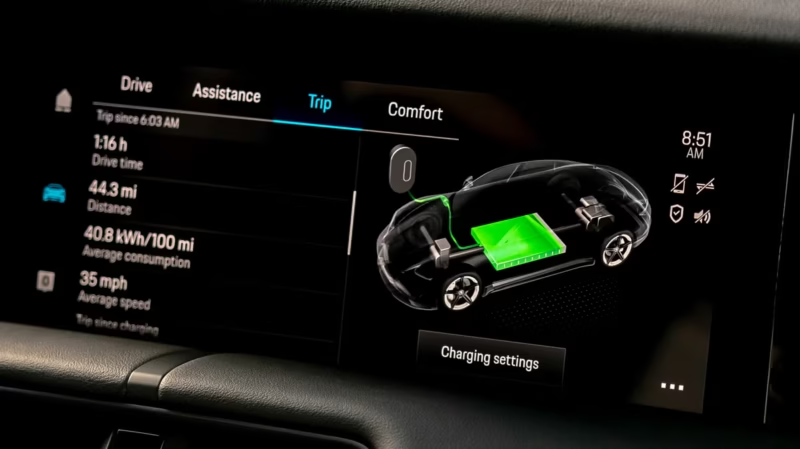Nowadays, a car is one of the most important things we own. It gets us to work, takes us on road trips, and helps with daily errands. But over time, wear and tear can take a toll. If you don’t take care of it, small issues can turn into expensive repairs.
The good news? Keeping your car in top shape isn’t complicated. With a few simple habits, you can extend its lifespan, improve fuel efficiency, and avoid sudden breakdowns. Regular maintenance keeps your car running smoothly, saves you money, and ensures a safe ride.
In this guide, we’ll walk you through the essential maintenance tips every car owner should know. Whether you’re a new driver or a car enthusiast, these steps will help you keep your vehicle running like new for years to come.
Change Your Oil on Time
Oil is the lifeblood of your engine. It lubricates moving parts, reduces friction, and helps prevent overheating. But over time, it breaks down and collects dirt, making it less effective. If you don’t change it regularly, your engine can suffer serious damage.
Most cars need an oil change every 5,000 to 7,500 miles, but this depends on your driving habits and the type of oil you use. If you frequently drive in heavy traffic, extreme weather, or tow heavy loads, you may need to change it sooner.
Checking your oil level is easy—just pull out the dipstick, wipe it clean, and reinsert it. If the oil looks dirty or the level is low, it’s time for a change. Staying on top of oil changes will keep your engine running smoothly and help avoid costly repairs.
Check Your Brakes Before It’s Too Late
Brakes are one of the most important safety features of your car. If they don’t work properly, nothing else matters.
Pay attention to warning signs like squeaking, grinding, or a soft brake pedal. These could indicate worn-out brake pads or low brake fluid. It’s a good idea to have your brakes inspected at least once a year and replace brake fluid every 2-3 years.
Remember, well-maintained brakes keep you safe and give you peace of mind on the road.
Pay Attention to Your Exhaust System
Your car’s exhaust system does more than just reduce noise—it plays a key role in performance, fuel efficiency, and emissions control. If there’s a leak or blockage, you may notice reduced power, higher fuel consumption, or even harmful fumes entering the cabin. Warning signs include a deep rumbling sound, rattling, or a sudden drop in mileage. Addressing these issues early can prevent bigger and costlier problems down the road.
For high-performance vehicles, a well-maintained exhaust system is even more essential. Take the C8 Corvette, for example—its exhaust design directly impacts horsepower, sound quality, and overall driving experience. So, upgrading the Corvette exhaust to a high-performance system can reduce backpressure, improve airflow, and bring out the full potential of your engine.
So, remember that regular inspections and quality components ensure your exhaust keeps your car running at peak performance.
Take Care of Your Battery
A dead battery can leave you stranded at the worst possible moment. Most car batteries last between 3-5 years, but their lifespan depends on how well you maintain them.
To avoid trouble, check your battery twice a year, especially before winter and summer. Clean the terminals to prevent corrosion and make sure the battery is secured. If your automobile refuses to start or the lights appear dim, it’s time for a replacement. A healthy battery ensures your car starts without issues every time.
Replace Air Filters for Better Performance
Your engine needs clean air to function properly, and that’s where air filters come in. A dirty air filter can reduce fuel efficiency and engine power.
Most manufacturers recommend replacing the engine air filter every 12,000 to 15,000 miles. Don’t forget about the cabin air filter, too—it affects the air quality inside your car and should be changed about once a year. Fresh filters keep your car running efficiently and make your drive more comfortable.
Check Your Suspension for a Smooth Ride
A worn-out suspension can make your ride uncomfortable and unsafe. If you feel excessive bouncing, hear clunking noises, or notice uneven tire wear, your shocks and struts might need attention.
Getting your alignment checked regularly helps maintain handling and stability. If your steering wheel vibrates at high speeds, have a professional inspect the suspension system. A well-maintained suspension keeps your car comfortable and easy to control.
Final Thoughts
Taking care of your car doesn’t have to be complicated. By following these simple maintenance tips, you can keep your car in top condition, improve fuel efficiency, and enjoy a smooth, worry-free ride. After all, a well-maintained car isn’t just about longevity—it’s about making every drive a great experience.


Leave a Reply